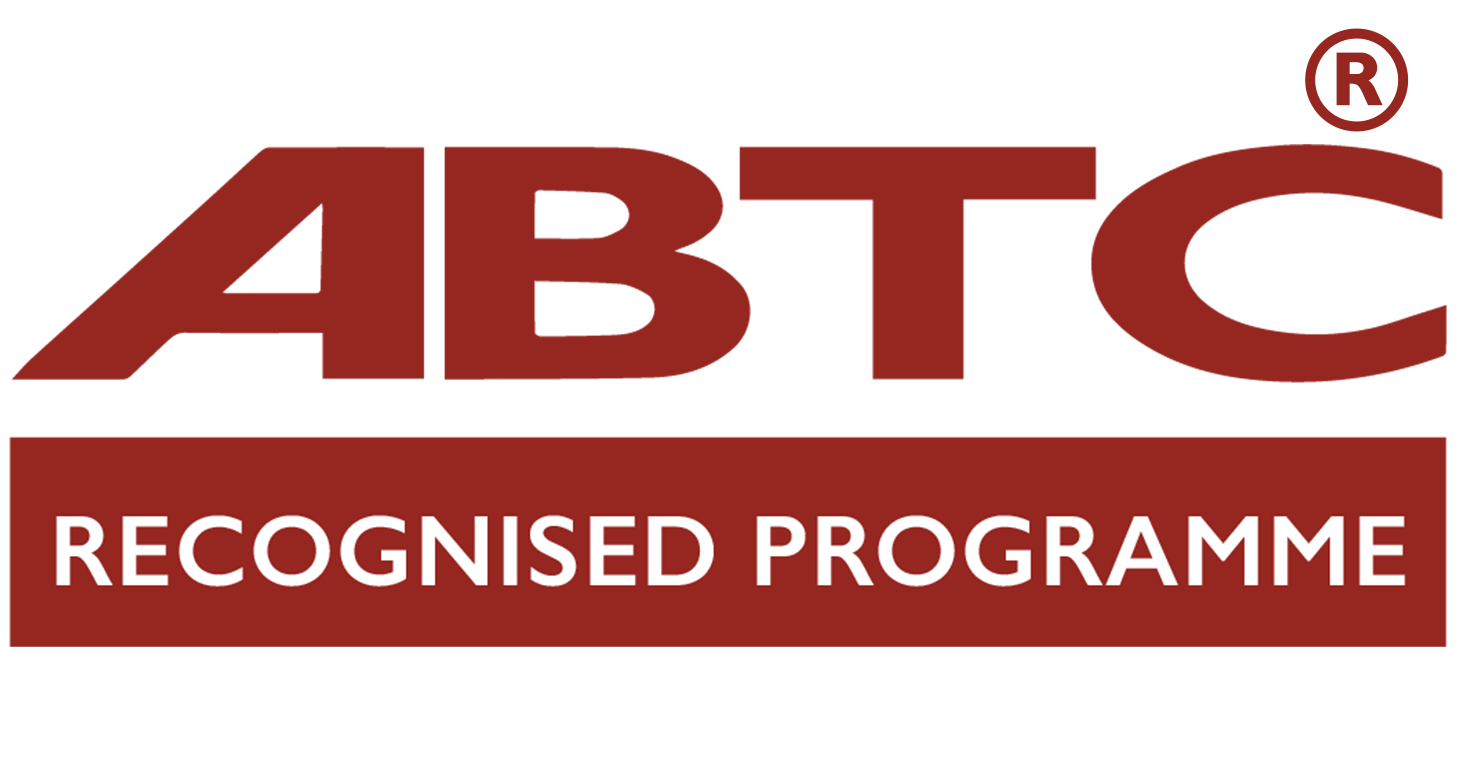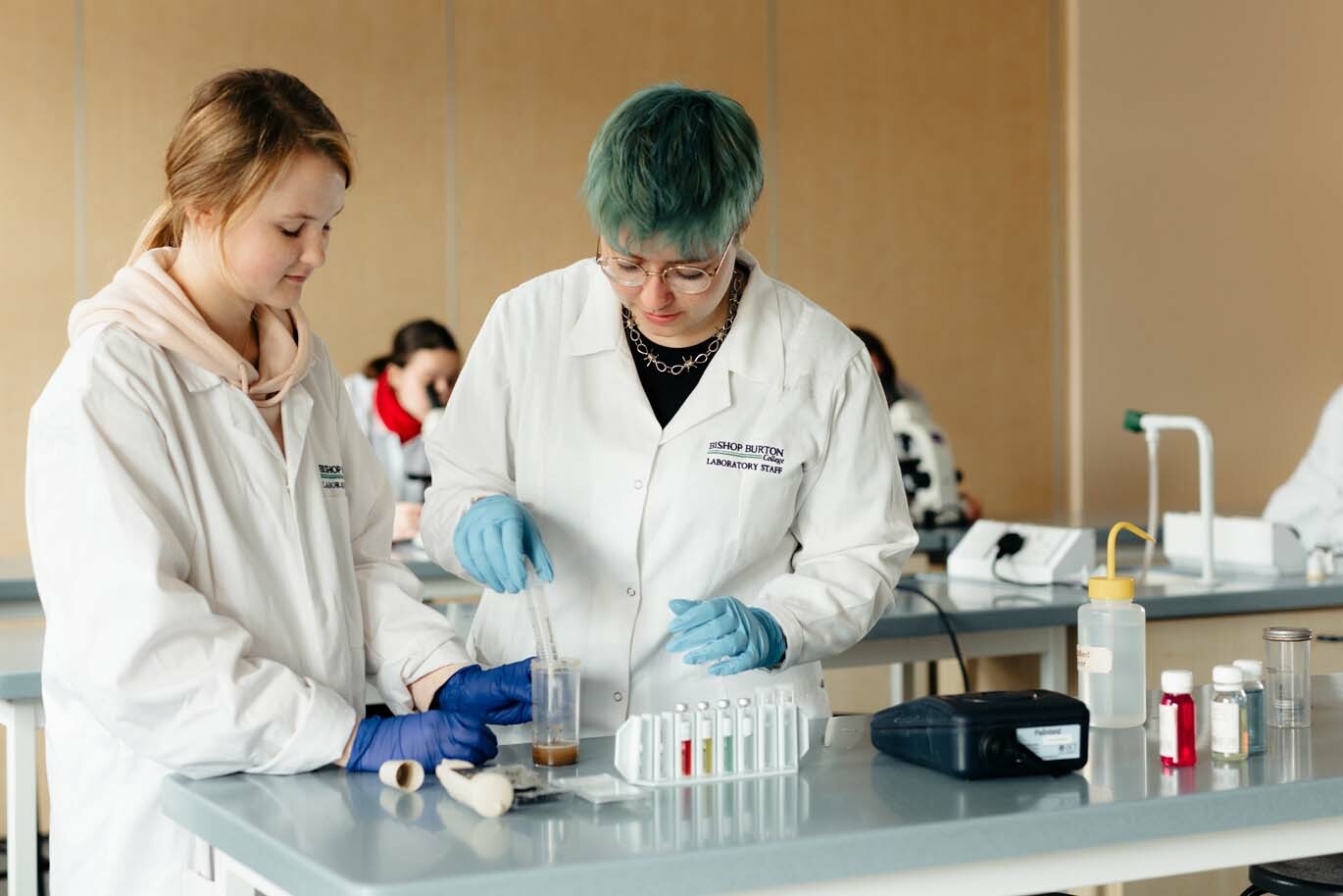
BSc (Hons) Applied Animal Behaviour and Training
Apply today Enquire about this course Download Course InformationJump to
Subject
Animal Sciences
Level
Bachelors Degree (Level 6)
Study Mode
Full-Time
Duration
3 years full-time
Start Date
September 2026
UCAS Course Code
C125
The course
Are you interested in animal behaviour and studying in an applied manner? If so, our BSc Applied Animal Behaviour and Training is for you.
Utilising a wide range of animals, our flexible learning environment will allow you to apply your knowledge to practical situations across a range of disciplines.
Your academic curriculum will be supported by our extensive practical facilities. The Animal Management Centre houses a wide range of animals including primates, exotic and small mammals, reptiles, birds, invertebrates and fish. In addition, you will have access to Bishop Burtons licensed boarding kennels and grooming parlour, a working farm with a variety of livestock and a large equine yard housing over 80 horses.
Course Information
- Provide you with the knowledge and practical skills required to train animals effectively and humanely.
- Modules are mapped to Animal Behaviour and Training Council (ABTC), allowing you to be recognised by the ABTC as an Animal Training Instructor when you join a member organisation on completion of the course.
- In collaboration with the Karen Pryor Academy (KPA), the Dog Trainer Foundations (KPA) online course is incorporated into the programme.
- Provide the underpinning theoretical knowledge of animal behaviour and physiological concepts and be able to apply this to industry.
- Develop your understanding of how this knowledge can be applied to research, training and commercial situations.
- Help you to demonstrate an awareness of health, welfare and ethical issues related to a range of species.
- Allow you to develop appropriate professional and analytical skills as required for working in industry.
Year 1
- Companion Animal Behaviour
- Principles of Animal Behaviour
- Academic and Professional Skills
- Animal Health and Nutrition
- Comparative Anatomy and Physiology
- Development of Professional Skills
Year 2
- Fundamentals of Animal Training
- Data Skills for Animal Scientists
- Ethics, Welfare and Legislation
- Behaviour, Management and Husbandry of Production Species
- Human Animal Psychology
- Entrepreneurialism
Year 3
- Advanced Animal Training
- Animal Communication
- Consulting in Animal Behaviour Management
- Final Project
You will need:
A minimum of 96 UCAS points
Plus:
GCSE English 4 or above or equivalent and a suitable reference
UCAS points may be from qualifications such as T Levels, A Levels, BTEC Level 3 Extended Diplomas, Access to Higher Education Diplomas, and City and Guilds Advanced Technical Diplomas amongst others. Please use the UCAS Tariff points calculator to determine the UCAS points value of your qualifications.
Life and/or experience of non-traditional students will be taken into account when considering applications. The successful completion of an entry task may be required when considering applications without the required formal entry qualifications.
If an applicants first language is not English, or a Tier 4 student visa to study is required and GCSE English at grade 4/C or equivalent is not held, they will need to evidence their English language proficiency level, such as International English Language Testing System (IELTS) 6.0 overall (with a minimum 5.5 in each skill).
Advanced entry may be possible due to prior experience or certificated learning; applicants will need to complete the recognition of prior learning approval process.
We utilise a range of teaching approaches to ensure inclusivity. Our theory lectures are student focused, delivering the core content and providing you with underpinning knowledge. To complement these, group seminars are used to reinforce concepts, allowing you to apply the theory utilising our extensive resources (including our Animal Management Centre, farm, laboratory) embedding industry skills and graduate attributes.
Guest lecturers and visiting specialists will supplement your learning by sharing their industry skills and knowledge, demonstrating how you would apply your learning within industry. This ensures that you have the latest knowledge for your field of study.
Field trips will further enhance your learning and provide you with the opportunity to apply theory in the field.
We take a student-centred approach to enhance your independent learning that takes place outside the classroom. This programme centres around in person lecturing with the use of blended learning to support learning opportunities, such as facilitating international guest speakers.
You will have the ability to undertake additional qualifications whilst on programme. In collaboration with the Karen Pryor Academy (KPA), the Dog Trainer Foundations (KPA) online course is incorporated. This additional course allows you to demonstrate your effective practical skills in clicker training, enhancing your employability.
The full-time pathway incorporates approximately 9-14 hours a week, including lectures, seminars, and practical sessions. Additional to this time will be final project support sessions in your final year that you can book with your supervisor.
You are also expected to carry out a significant amount of independent study in addition to contact time (approximately 25-30 hours a week). Independent study includes reading around the subject, preparing for tutorials and seminars, and preparing for and completing module assessments; forming an essential part of a students learning journey.
You can expect to receive your timetable during induction week.
- A tablet, laptop or stationery to take notes in lectures and seminars
- University Centre branded white laboratory coat
- College-branded blue kennel coat
- Appropriate waterproof outdoor clothing and footwear for outdoor practical sessions
- Strong steel toe capped boots for practical sessions
- Roughly £300 to cover the costs of field trips and visits over the duration of your programme
- We have a strict policy of not allowing work boots inside buildings. You will need to have alternative footwear (shoes or trainers) to attend lectures and tutorials
- Training equipment will be required (i.e. clicker and target stick)
- A wide range of resources are available for use both on and offsite for dissertation projects but it may not be possible to purchase/service all requests, therefore students need to be aware that they may need to self-fund some elements
- On successful completion of the programme, you will have the opportunity to graduate at a ceremony wearing formal dress. The hire of the formal dress is an additional cost
Validated by University of Hull
We are proud to collaborate with University of Hull on the validation of this course.
This includes transforming our programmes to ensure that we meet the evolving needs of the sector, giving you the best opportunities for success when you graduate by having a competence-based focus. Find out more about competence-based higher education.
View the policies and procedures you would be agreeing to comply with by registering for this programme. This encompasses University of Hull Quality and Standards, including a Guide for Collaborative Provision students.
Financial Information
Find the full details of the fees associated with this programme and the financial support available.





